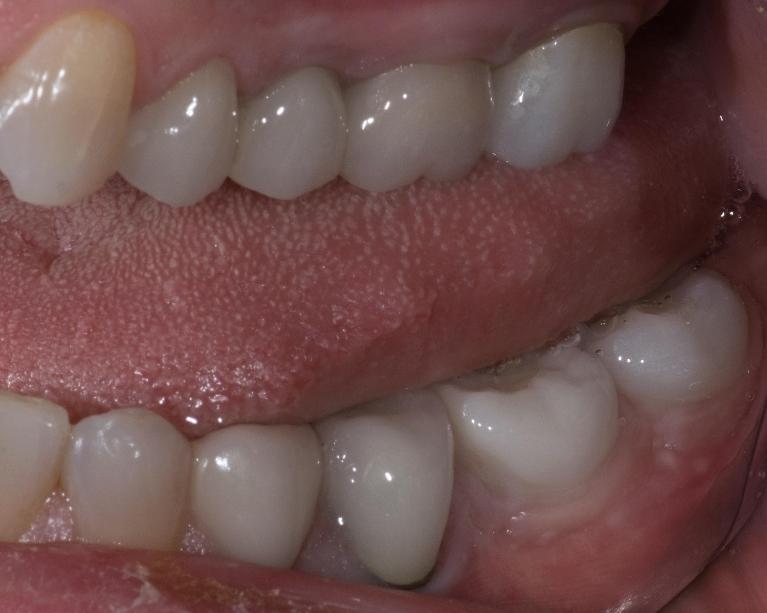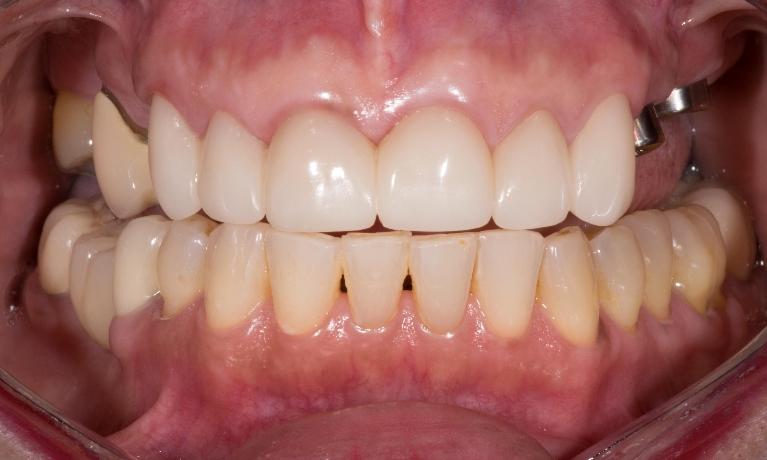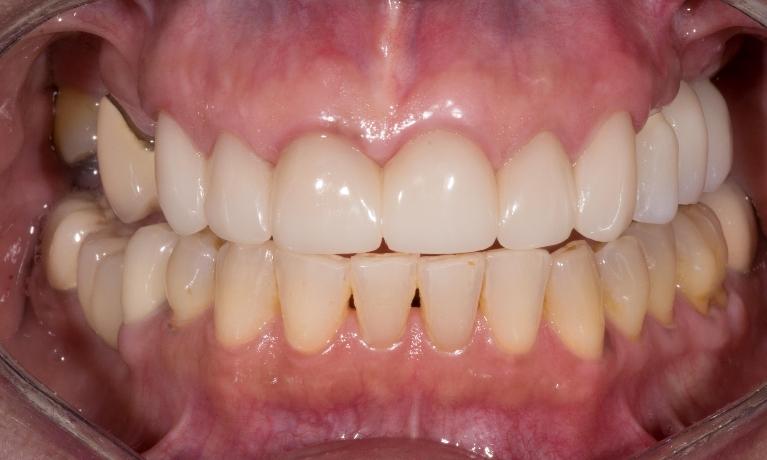Dental Implants in Woodland Hills & Manhattan Beach
When you lose a tooth, we know how difficult it can make day-to-day life. Simple things we take for granted—eating, speaking, and smiling—suddenly become more challenging with missing teeth, and it's a good idea to replace a missing tooth as soon as possible.
The compassionate teams in our Woodland Hills and Manhattan Beach, CA, dental offices understand your frustration. The good news is that dental implants can restore your smile, protect your oral health, and improve your quality of life.
 Contact Our Woodland Hills or Manhattan Beach Practice
Contact Our Woodland Hills or Manhattan Beach Practice
If you’re considering dental implants in Woodland Hills, CA, or Manhattan Beach, CA, contact us at (818) 886-1076 or (310) 640-0967, respectively. A team member at either location will schedule your consultation with Dr. Joel Gould or Dr. Gabe Adorjan.
- What Are Dental Implants?
- What Are the Oral Health Benefits of Dental Implants?
- I Have Lost Several Teeth. Are Dental Implants Still for Me?
- Do Dental Implants Hurt?
- How Long Will My Dental Implant Last?
What Are Dental Implants?
Dental implants are titanium cylinders that support a dental crown or other restoration. They are designed to complete your smile and your chewing surface.
Because titanium is a biocompatible metal, it will integrate with your bone, creating a stable foundation for your single crown, and it can even support a fixed dental bridge or dentures.
The process begins with a comprehensive evaluation to ensure you’re a good candidate for dental implants. If you are, the next step is post placement, followed by several months of healing. During this period, the titanium bonds with your jawbone to create a solid root foundation for your natural-looking tooth restoration.
Dental implants can replace one tooth or multiple missing teeth. Because they mimic your natural teeth, they offer stability and provide several oral health benefits, making them one of the most reliable tooth replacement options.
What Are the Oral Health Benefits of Dental Implants?
When you lose a tooth, your supporting bone structure may begin to deteriorate through a process called resorption.
Teeth and bone have a dependent relationship—bone supports your tooth, and your tooth stimulates your bone. When that relationship is disrupted by tooth loss, your bone recedes because it is no longer needed. Bone loss can put your remaining teeth in jeopardy. They may tilt and shift as their foundation disappears.
Dental implants help to protect that relationship by preserving bone and preventing resorption. Since they fill the gap in your smile, dental implants keep your remaining teeth from shifting and preserve your bite.
I Have Lost Several Teeth. Are Dental Implants Still for Me?
If you have multiple missing teeth, dental implants can provide added stability to your dental bridge or denture. By using two to six dental implants to support your appliance, you can enjoy added confidence and the health benefits they provide.
Do Dental Implants Hurt?
When discussing dental implants with patients, one of the first questions that we are often asked is, “Will it hurt?”
A dental implant placement procedure is usually painless. At the time of surgery, the surgical site is numbed thoroughly. There is never pain during the procedure since it is managed with proper anesthesia.
There is rarely the need for prescription-strength pain relief with dental implant placement in our Woodland Hills, CA, or Manhattan Beach, CA, dental office.
If you've been thinking about replacing missing teeth with implants, don't let the fear of pain influence your decision. 
How Long Will My Dental Implant Last?
This is a question that commonly comes up when patients are trying to decide between a dental bridge or a dental implant. While a bridge will never last forever, dental implants can actually last a lifetime. There is one caveat, though.
In a natural tooth, the gum is physically attached to the tooth with collagen fibers. This is very similar to how your nails are attached to your fingers. In the presence of health, these collagen fibers resist bugs and bacteria penetrating deeper layers below. They help protect the tooth and bone from decay. Regular brushing, flossing, and visits to the dentist for cleanings keep this area healthy.
In an implant, the collagen fibers in the gum cannot attach to the implant. The gums simply sit around the titanium abutment. This makes the implant and bone below more vulnerable to neglect than a natural tooth.
While dental implants are a very successful and highly reliable treatment, it is critical to maintain good oral hygiene for implant survival.

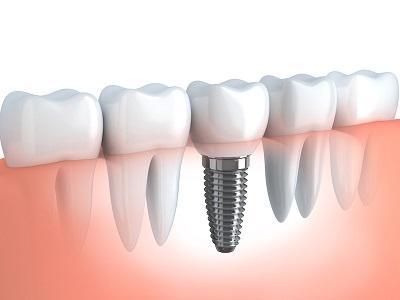
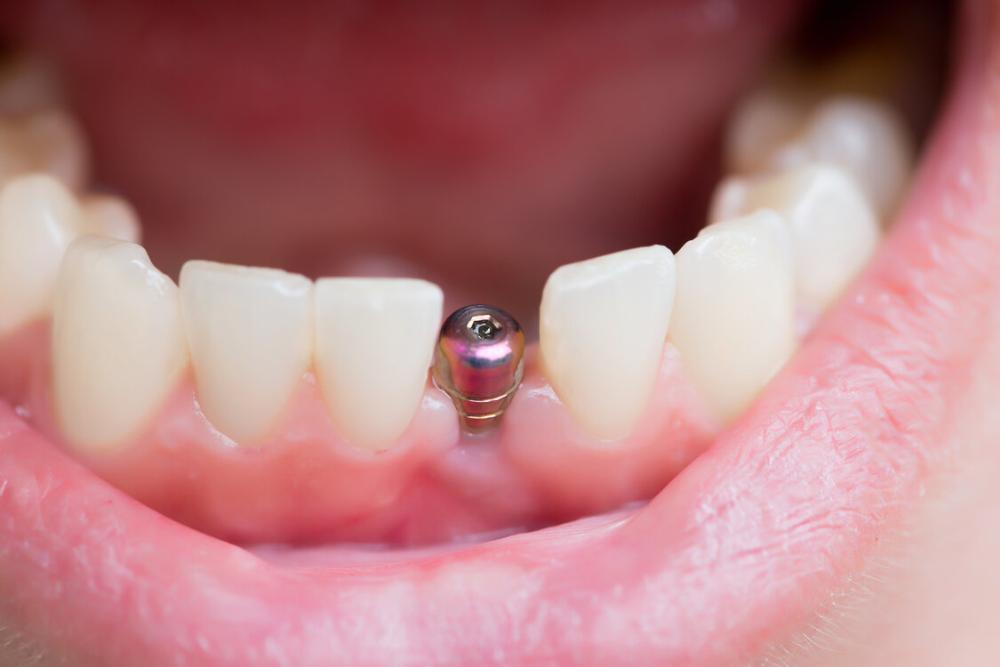 When the Dental Implant is Placed
When the Dental Implant is Placed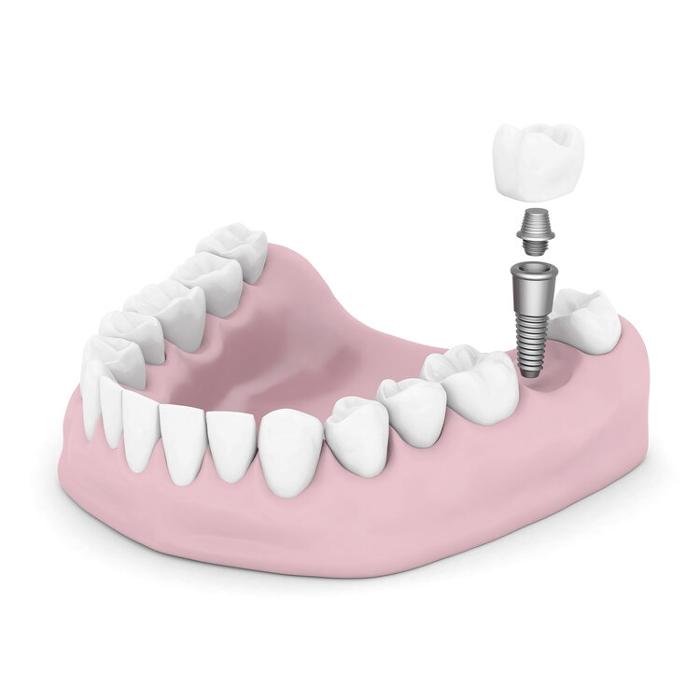 Dental Implants in Woodland Hills
Dental Implants in Woodland Hills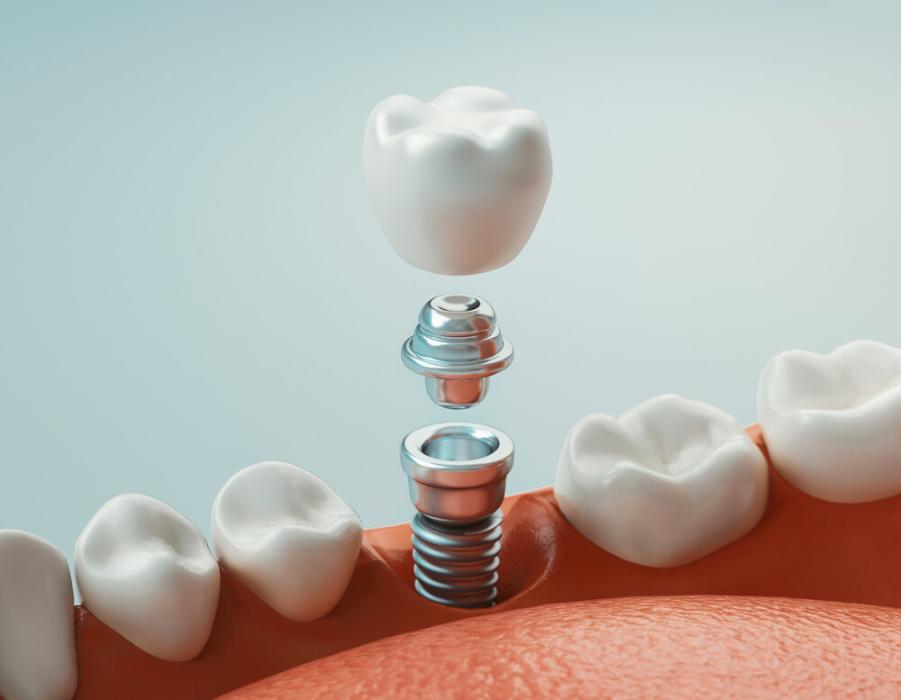 Healing and Recovery after Dental Implants
Healing and Recovery after Dental Implants



